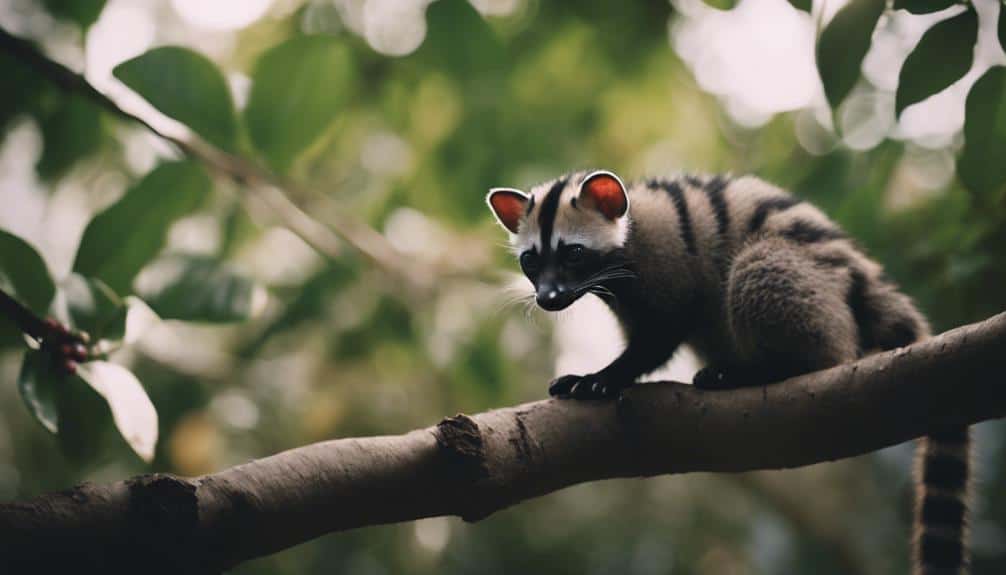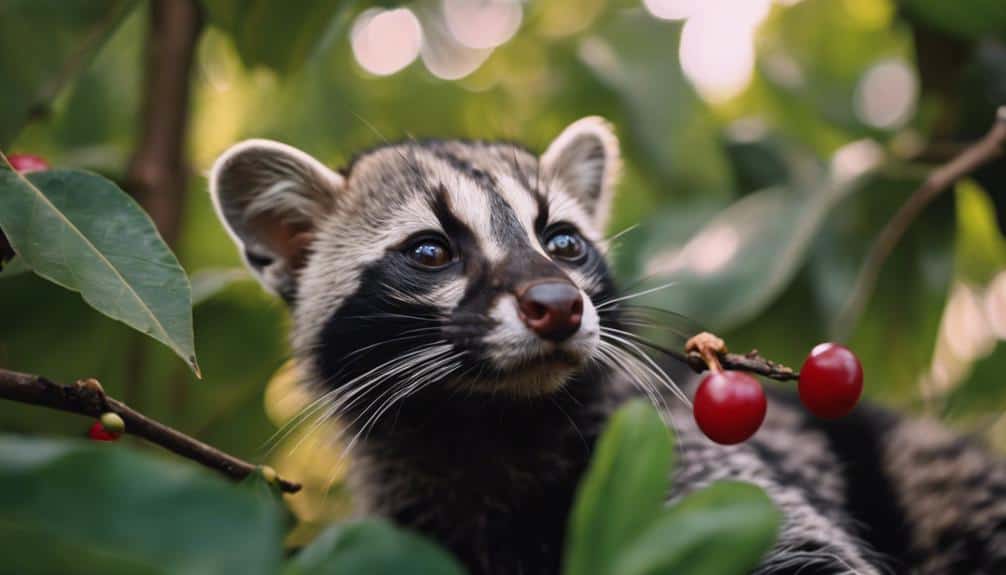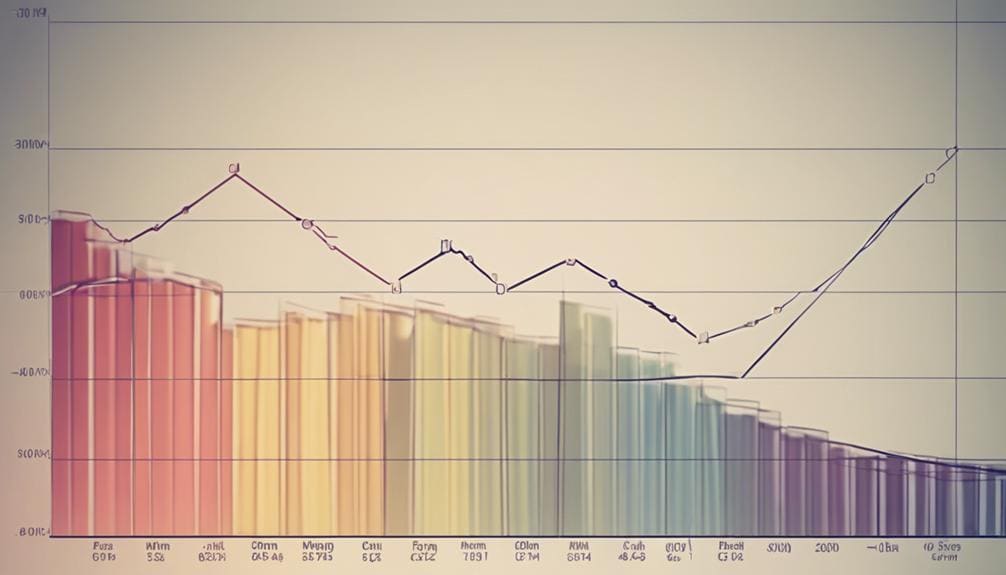Understanding Civet Coffee Prices: The Ultimate Guide

As I explored the intricate world of civet coffee pricing, I was struck by the complex web of factors that contribute to its varying costs. From the meticulous bean collection process to the unique production methods, each aspect plays an important role in determining the final price tag of this coveted beverage. However, there is one key element that remains elusive, driving curiosity and prompting further investigation into the domain of civet coffee prices.
The Cost of Civet Coffee
The pricing of civet coffee is a dynamic interplay of various factors, including origin, sourcing methods, and the specific type of beans utilized. Civet coffee, also known as Kopi Luwak, is renowned for its expensive nature, with prices ranging from $5 to $100 per cup. The cost is heavily influenced by the quality and flavor profile, with wild-sourced varieties often commanding higher prices due to their enhanced flavors compared to farmed beans. Annual production figures further highlight this disparagement, with wild kopi luwak output estimated at 1,100 lbs, while farmed production exceeds this by a large margin at 50 tons.
The scarcity of wild-sourced beans contributes to their elevated prices, as they're considered more exclusive and offer unique flavor profiles sought after by coffee connoisseurs. This limited availability, coupled with rising media attention driving up demand, further accentuates the expensive nature of high-quality civet coffee. The pricing intricacies of civet coffee underscore the intricate balance between production, quality, and consumer demand in determining its market value.
Factors Influencing Civet Coffee Pricing
Factors shaping the pricing dynamics of civet coffee include the type of coffee beans used and the method of sourcing, influencing its market value substantially. Arabica coffee beans are generally more sought after, leading to a higher price compared to other varieties like Liberica. Additionally, wild-sourced kopi luwak, where civets consume the beans naturally in the wild, is typically more expensive due to the labor-intensive harvesting process. On the other hand, farmed civet coffee, while more abundant, tends to be more affordable. The table below provides a snapshot of the annual production and pricing range of civet coffee, shedding light on the significant variations in the market:
| Category | Annual Production | Price Range per Cup |
|---|---|---|
| Wild-sourced | 1,100 lbs | $50 – $100 |
| Farmed | 50 tons | $5 – $20 |
The increased media exposure surrounding civet coffee has also played a role in boosting its demand and subsequently impacting its pricing in the market.
Rarity of Civet Coffee Production

Analyzing Civet Coffee Production's Uniqueness and Rarity sheds light on its limited availability and high demand factors in the market. Civet coffee is produced in limited quantities annually, contributing to its exclusivity and desirability among consumers.
The labor-intensive process of collecting and processing civet excretions further adds to the rarity of this sought-after luxury beverage. Quality control measures are meticulously enforced to guarantee that only the finest beans are used in the production of civet coffee, maintaining its exclusivity and premium pricing justified by its scarcity and exceptional taste profile.
The smooth flavor profile of civet coffee, characterized by low bitterness and acidity, enhances its appeal as a premium product in the market.
The unique combination of production rarity, quality control, and exceptional taste makes civet coffee a highly sought-after luxury item among coffee enthusiasts willing to experience its exclusive and refined flavors.
Labor-Intensive Bean Collection Process
Exploring the meticulous process of hand-picking ripe coffee cherries from civet cat feces reveals the labor-intensive nature of collecting beans for civet coffee production. Workers engage in a time-consuming task, meticulously searching through the feces of civets to extract the undigested coffee beans. This process demands patience and attention to detail to make certain that only the finest beans are selected for further processing. Each bean is carefully collected, washed, dried, and processed to maintain the exceptional quality and distinct flavor that civet coffee is renowned for. The manual labor involved in the bean collection process significantly contributes to the exclusivity and high price of the final product, making civet coffee a luxury item sought after by many coffee aficionados.
| Aspect | Description |
|---|---|
| Collection Method | Hand-picking ripe coffee cherries from civet cat feces |
| Labor Intensity | High |
| Attention to Detail | Essential |
Unique Coffee Production Method

The unique coffee production method of civet coffee hinges on the selective diet of Asian Palm Civets, influencing the flavor profile of the beans they consume.
The meticulous process of bean selection and the subsequent digestive fermentation in civets' systems play a pivotal role in developing the sought-after taste of civet coffee.
Civet Diet Influence
Without a doubt, the civet cat's selective diet greatly influences the unique flavor profile of civet coffee beans. By choosing only the ripest coffee cherries to consume, civets play an important role in shaping the beans' taste.
The enzymes present in the civet's digestive system interact with the beans during digestion, altering their composition and enhancing their overall flavor. Moreover, the controlled fermentation process that occurs in the civets' stomachs contributes greatly to the distinct taste of civet coffee.
This digestive process isn't only essential for the exclusivity of civet coffee but also adds to its desirability among coffee connoisseurs seeking a truly exceptional and rare brew.
Coffee Bean Selection
In the world of unique coffee production methods, the meticulous selection process of coffee beans by Asian Palm Civets stands out as a defining factor in creating the sought-after flavor profile of civet coffee. Asian Palm Civets choose the ripest coffee cherries, which are then subjected to an enzymatic process in their digestive system, enhancing the beans' taste. This exclusive method of bean selection leads to a premium coffee production, resulting in a distinctive flavor with notes of nuttiness, vanilla, and almond. The selective consumption of coffee cherries guarantees a more refined and sought-after coffee experience. The Kopi Luwak Coffee, produced through this meticulous bean selection process, offers a unique and exceptional flavor that appeals to coffee enthusiasts seeking a premium and exclusive brew.
| Key Points | Details |
|---|---|
| Bean Selection | Asian Palm Civets pick ripest cherries for coffee production |
| Flavor Profile | Distinctive taste with nutty, vanilla, and almond notes |
| Enzymatic Process | Alters coffee bean composition, enhancing flavor |
| Premium Production | Exclusive method results in sought-after coffee experience |
Digestive Fermentation Process
Engaging in the digestive fermentation process, Asian Palm Civets play a pivotal role in transforming coffee beans into the coveted and distinctive civet coffee. Enzymes present in the civet's digestive system interact with the beans during fermentation, altering their composition. This enzymatic activity enhances the flavor profile of the coffee beans, giving rise to a unique taste that's sought-after by coffee enthusiasts worldwide.
The digestive fermentation process is fundamental in creating the exclusive and premium quality associated with civet coffee. Due to this meticulous production method, civet coffee boasts a level of exclusivity that contributes to its premium pricing in the market. The distinctive flavors and aromas resulting from the digestive fermentation process make civet coffee a truly one-of-a-kind experience for those seeking exceptional coffee varieties.
Global Price Range for Civet Coffee

The global price range for civet coffee is a dynamic landscape where prices can range from as low as $5 to as high as $100 per cup. This variation is influenced by several key factors, including the origin of the beans, the method of sourcing – whether wild or farmed, and the level of effort involved in harvesting.
Fluctuations in market demand, driven in part by media exposure and changing consumer preferences, also play a significant role in shaping the pricing of this exclusive and sought-after beverage.
Price Fluctuations Analysis
Analyzing the global price range for civet coffee reveals a significant fluctuation, with prices ranging from $5 to $100 per cup. This variation is attributed to factors such as the sourcing methods, bean quality, and whether the coffee is wild-sourced or farmed.
Wild-sourced kopi luwak, obtained through the traditional method of collecting civet droppings in the wild, commands a higher price due to the labor-intensive process. Annual production numbers also play a role, with wild kopi luwak estimated at around 1,100 lbs compared to 50 tons of farmed production.
The market is further influenced by rising global demand for this unique coffee, impacting both its pricing and availability.
Factors Influencing Costs
Factors shaping the costs of civet coffee globally range from origin and sourcing methods to the type of beans utilized.
Wild-sourced kopi luwak, derived from the natural diet of civets, commands a higher price point due to its superior flavor compared to farmed beans.
Annual production figures reveal a stark contrast, with wild kopi luwak yielding 1,100 lbs annually while farmed kopi luwak reaches 50 tons, impacting both pricing and availability.
The increased media exposure surrounding civet coffee has heightened consumer demand, directly influencing its pricing and exclusivity in the market.
Key considerations such as the type of coffee beans, organic cultivation practices, and sourcing techniques play a pivotal role in determining the final price tag of this coveted beverage.
Market Demand Impact
Market Demand for civet coffee intricately shapes its global price range, spanning from $5 to $100 per cup based on origin and sourcing. Wild-sourced Kopi Luwak commands a higher price due to the rarity and difficulty in sourcing it.
The annual production volume also plays a vital role, with wild kopi luwak limited to around 1,100 lbs compared to farmed production reaching 50 tons. Media exposure has propelled the demand for Civet Coffee, influencing its pricing and availability in the global market.
The distinction between wild and farmed Civet Coffee notably impacts its price point, reflecting the preferences of consumers seeking unique and ethically sourced brews. The interplay between market demand, production methods, and media visibility continues to shape the diverse price range of Civet Coffee globally.
Understanding High Civet Coffee Costs

High civet coffee costs are primarily influenced by the labor-intensive production process and the limited annual production of this exclusive and rare coffee variety. Kopi Luwak commands a high price in the market due to its scarcity and the intricate method of production involved.
The labor-intensive nature of sourcing coffee beans from civet excrement, coupled with the limited annual yield, contributes greatly to its premium pricing. Ensuring quality control and adhering to ethical sourcing practices further add to the higher costs associated with civet coffee.
Additionally, the unique flavor profile and characteristics of civet coffee justify its elevated price point compared to conventional coffee varieties. The exclusivity and rarity of this type of coffee play an important role in setting it apart in the market and appealing to discerning consumers seeking a distinctive and luxurious coffee experience.
Impact of Demand on Civet Coffee Prices
With a surge in consumer interest and media exposure, the pricing of civet coffee fluctuates in response to evolving demand dynamics. The high demand for wild-sourced kopi luwak plays a significant role in its premium pricing within the market.
Consumer interest and media exposure have propelled the prices of civet coffee upwards, particularly for wild kopi luwak, known for its superior taste derived from the natural diet of civets.
Annual variations in production, especially between wild and farmed kopi luwak, have a direct impact on pricing and market availability. As demand continues to drive the market, the fluctuating prices of civet coffee reflect the delicate balance between consumer preferences, media influence, and the limited supply of this sought-after brew.
Understanding these demand dynamics is essential in comprehending the market forces that dictate the pricing of civet coffee.
Exploring Civet Coffee Price Fluctuations

Exploring the fluctuations in civet coffee prices reveals a complex interplay of factors such as origin, sourcing methods, and production techniques that contribute to the varying costs of this sought-after brew. When delving into the domain of kopi luwak pricing, several key aspects come into play:
- Wild-Sourced vs. Farmed Varieties: The distinction between wild-sourced and farmed varieties notably impacts the pricing of civet coffee. Wild kopi luwak, being rarer and often considered more flavorful, commands a higher price tag compared to its farmed counterparts.
- Annual Production Disparities: The annual production quantities of wild kopi luwak, estimated at 1,100 lbs, starkly contrast with the 50 tons of farmed production. This significant difference in supply levels can influence the price fluctuations observed in the market.
- Media Exposure and Demand Increase: The rise in media exposure surrounding civet coffee has led to a surge in demand for this exotic brew. As demand increases, so do the price fluctuations, reflecting the interplay between supply, demand, and public interest in kopi luwak.
Conclusion
To sum up, the pricing of civet coffee is influenced by a variety of factors, including its rarity, labor-intensive production process, and global demand.
The unique and exclusive nature of civet coffee contributes to its high cost, ranging from $5 to $100 per cup.
Understanding these factors allows consumers to appreciate the value of this luxury beverage and the intricacies of its market dynamics.





